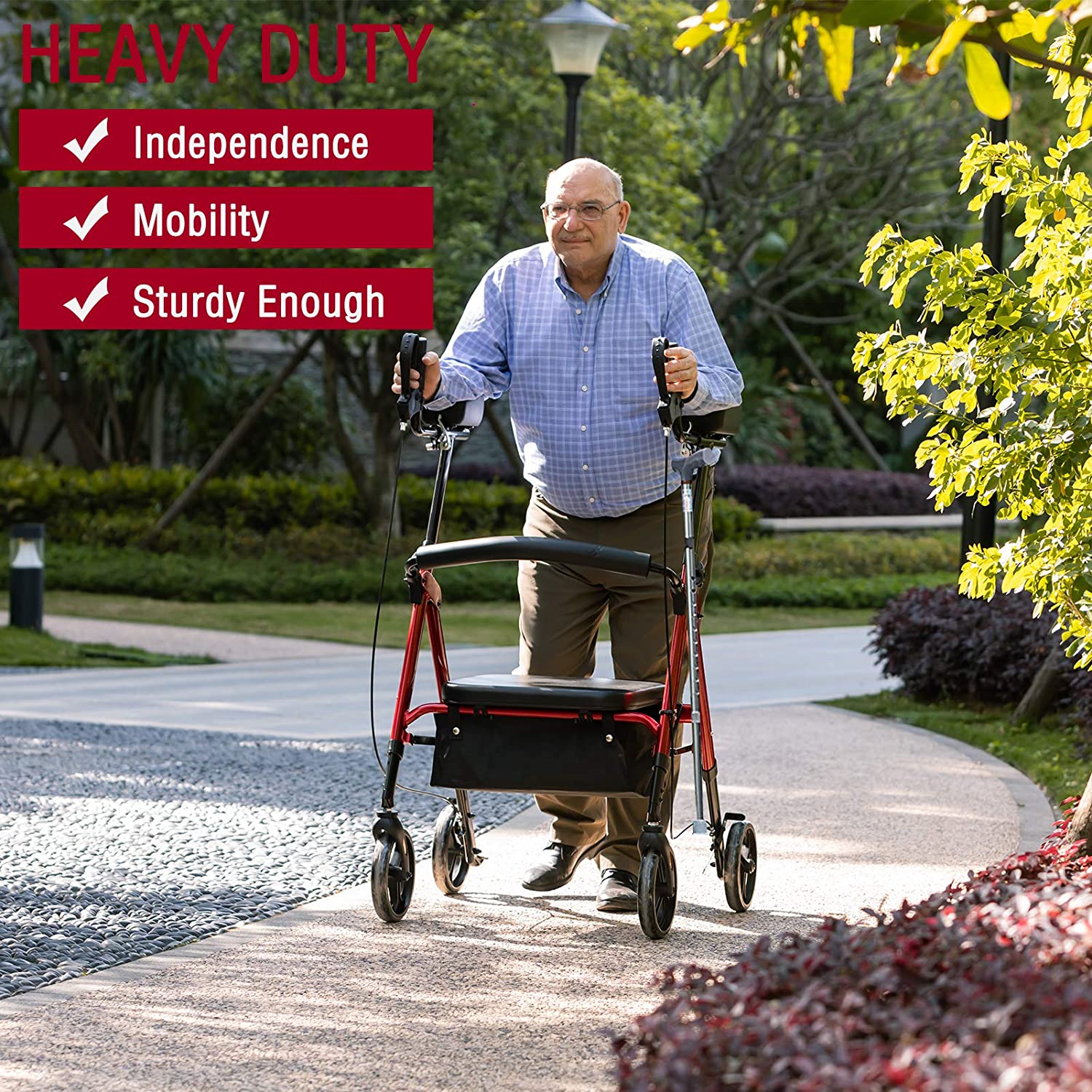If you’re dealing with arthritis or joint degeneration, you know how tough it can be just to get around sometimes. The stiffness, the pain, the lack of stability—it all adds up. Whether you’re walking across your living room or trying to make it down the driveway to grab the mail, every step can feel like a challenge. That’s where mobility aids come in, and in particular, bariatric walkers can be a real lifesaver for many folks.
But here’s the big question: Can bariatric walkers be used safely by people with arthritis or joint degeneration? Short answer? Yes, absolutely. But let’s break it down a bit and talk about why they’re helpful, what you should look for, and how to make sure you’re using the right one for your situation.
What Are Bariatric Walkers?
Bariatric walkers are basically heavy-duty walkers designed to support more weight and provide extra stability. They’re made for folks who might need a little more support than what a standard walker offers. Whether you’re dealing with obesity, mobility challenges, or a chronic condition like arthritis, these walkers can offer the strength and sturdiness you need.
Many bariatric models come in different styles. Some are your classic four-legged walker, while others are bariatric rollators, which are rolling walkers with wheels and often a seat. You’ll also see models rated for different weight capacities—some even go up to 500 pounds, like a bariatric rollator 500lbs. That’s solid support right there.
Why Bariatric Walkers Work for Arthritis and Joint Degeneration
Let’s be honest—arthritis and joint degeneration are no joke. The wear and tear on your joints, especially in your knees, hips, and hands, makes everything from standing up to walking to sitting down a potential struggle. That’s where a good bariatric walker with seat can be a real blessing.
Here’s why these walkers are a smart choice for people with joint issues:
1. Stability and Balance
Joint problems can mess with your balance, especially when you’re tired or in pain. A heavy duty walker gives you a solid base to lean on. That extra support helps reduce the risk of falls—something we all want to avoid.
2. Weight Distribution
When you have arthritis in your knees or hips, walking can cause a lot of pain. A bariatric rollator helps distribute your weight more evenly, taking pressure off your joints. This can make walking less painful and more manageable.

3. Built-in Seats for Resting
Ever just need a break? If you’re out shopping or just walking around the block, it’s not always easy to find a place to sit. A bariatric walker with seat means you’ve got a chair with you at all times. That’s a big deal when you’re dealing with fatigue or joint pain.
4. Comfortable Hand Grips
People with arthritis often have pain in their hands and wrists, too. Bariatric walkers usually come with padded, ergonomic grips that are much easier on the joints. No more white-knuckling those hard plastic handles.
Safety Tips for Using a Bariatric Walker with Arthritis
Just having a walker isn’t enough—you’ve gotta use it the right way. Here are a few friendly tips to keep things safe and smooth:
Get the Right Height: Your walker should be adjusted so your elbows bend slightly when you’re holding the handles. If it’s too high or too low, it can actually throw off your balance or cause more joint pain.
Use the Seat When You Need It: Don’t push yourself too hard. If you’re using a bariatric rollator 500lbs with a seat, use it. That’s what it’s there for.
Watch the Wheels: If you’re using a rollator walker (the kind with wheels), make sure the brakes are working properly. Test them often, especially before sitting down.
Clear Your Path: At home, keep walkways clear of rugs, cords, and clutter. You want to be able to move around with your walker without tripping over anything.
Choosing the Right Bariatric Walker
There are a lot of options out there, and not every walker is right for every person. When shopping for a bariatric walker, especially if you have arthritis or joint issues, keep these in mind:
Weight Capacity: Make sure the walker can support your weight comfortably. Look for labels like bariatric rollator 500lbs if you need a higher capacity.
Seat and Backrest: If you want the option to sit, get a model with a padded seat and backrest. It makes all the difference.

Wheels or No Wheels: Rollators are great if you have decent upper body strength and want to move quickly. Standard walkers (no wheels) offer more control, which can be safer for some people with balance issues.
Foldability: If you’re tight on space or need to transport it, look for one that folds up easily.
Living with arthritis or joint degeneration can be frustrating, but you don’t have to let it stop you from moving around and staying independent. Bariatric walkers, especially the ones with seats and heavy-duty support, can give you the stability and confidence you need to get through your day with less pain and more freedom.
So yes—they’re not just safe for people with joint issues, they can be a total relief. If you’ve been struggling with walking or standing for long periods, it might be time to check out a good bariatric rollator or heavy duty walker. Your joints will thank you.
